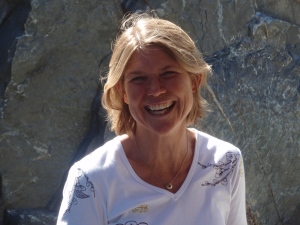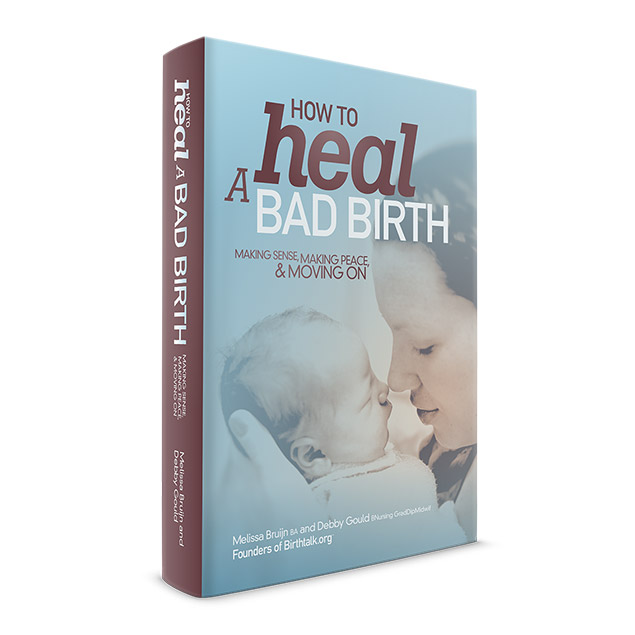One year ago, we posted an article to this blog titled, “There is a secret in our culture, but it is not that women are strong. Why some birth quotes may be damaging to women.” We focused specifically on a birth quote by an author named Laura Stavoe, whose quote appears on birth, midwifery and doula websites all around the world. This blogpost of ours has become our most-commented article of all time, & shared across cyberspace. As a result, it was published in Pathways magazine’s Winter issue under the title, “Encouraging Words, Unintentional Wounds”. We received some heartfelt emails from Pathways readers, & much positive feedback for the article.
We also recently received another email in response to the article in Pathways…from Laura Stavoe herself. She was copying us on an email she had written to the editors of Pathways magazine in response to our article, and wrote to us that she thought that our organisation ‘sounds wonderful, and I truly appreciate all the work you do.’ She thought we’d be interested to know the original context of her quote, which of course we were! We had tried to find this information initially, but because we were searching under Ms Stavoe’s married name, we had no luck. In the end we had decided that, although we really wanted the context, as we guessed it would give more weight to what we were saying, we could still write the article anyway, as it was really about how it can be interpreted that we were concerned with.
As it turns out, the quote is excerpted from an article that is no longer available online, so we were happy and grateful to receive Ms Stavoe’s email. We have reproduced it in full, below :
Dear editors:
My step-daughter gave me your magazine when she realized that you ran an article based on a quote that I wrote many years ago, “There’s a secret in our culture, and it’s not that birth is painful. It’s that women are strong.” I’ve been as amazed as anyone at the way those words have found a life of their own, and I admit at times I’ve been uncomfortable with the assumptions people make based on those words. The authors of your article were careful to mention that the words were taken out of context. I wanted to add that context here.
I wrote those words as part of a first-person essay for American Baby magazine in 1998. The essay was about the rather old-fashioned idea (popular in my mother’s generation) that we should not talk about birth stories because it would scare women about the pain. The thesis of the essays was that women have much to be gained by sharing our birth stories. The “secret” was not meant to suggest that anything at all about natural childbirth, but rather, that in sharing our stories we would learn what so many women have been able to bear over the centuries in its myriad of forms.
Your article gave me the opportunity to see how some interpreted that quote, and I appreciate that since to me it was always connected to the “storytelling” idea. I stand by the idea that women are stronger than we have been led to know over the years, but I certainly hope that people don’t assign such a narrow application of what is meant by “strength.” My own situation was a complicated one. I was in preterm labor, on bedrest and on medication for the last 77 days of my twin pregnancy. My sons were born in an operating theater. I had them vaginally and without an epidural, but only because they came so fast and Dylan happened to turn head down at the last second.
I would’ve loved to have had a more natural pregnancy and birth, but it was not our path.
Still, it is my best story. It is my best story because those boys are now fifteen years old. Gabe ran a sub 2 minute 800 as a freshman and placed in state. Dylan is going to play violin with his high school orchestra at Carnegie Hall in April. And while part of me mentioning these things is just a typical mother’s pride, there is also always the subtext: they almost weren’t here. The combination of western medicine and my body and grace meant that these two beings had a chance. (To read Ms Stavoe’s intense journey to birth with her twins, see Diary of a Difficult Pregnancy)
Also it is my best story because I have never been the same since their birth, not because my birth was so perfect, but because motherhood in its entirety is a transformative experience. At least that is how it has been for me.
I don’t know that this generation of women need the quote in the context I wrote it. I think women are far more open about their stories than previous generations. How wonderful is that! I appreciate the opportunity to see these words in a different light, and I hope that women keep talking about things so that we all gain strength from each other.
Laura Stavoe
We would like to thank Ms Stavoe for contacting us, and clarifying the original context of her oft-used quote for a new generation of birthing women. Ms Stavoe is absolutely right to stand by the idea that women are stronger than we have been led to believe, and that’s one of the reasons we run Birthtalk.org. We agree that things are changing, and women do share more of their stories, perhaps partly due to the legacy of Ms Stavoe and her peers. Our ongoing focus at Birthtalk.org is to offer women opportunities to discover their strength by sharing positive, empowering stories, and busting the birth myths that have kept many of us trapped in fear.
©Birthtalk.org 2011



I am so, so glad to know the context of this quote! It certainly helps to understand the meaning. And how true it is.
I’ve been thinking about your article about this quote and came to seek it out. Now, I see (WAY late) this follow up post. How wonderful that she contacted you and shared the original context. That’s just great! The internet is so amazing and “smallening” the world 🙂
Thanks so much for your comment, Molly 🙂 We felt very honoured that Laura made contact with us, and so grateful to know the original context. SO amazing, yes, that these connections can happen from the other side of the world 🙂
Hmmm, it is interesting, because I have always loved this quote but always thought it was about women handling birth with all the ups and downs and challenges birth surprises us with. It is not about the pain, it is about the whole experience, which is why I left the quote even though I had understanding for other peoples views after Birth Talk wrote the article. It was nice to hear the context and read you article. 🙂
I wrote a response to Harm’s response to your response of the original out-of-context quote. 🙂
For the record, I am a huge birthtalk.org fan. I love and respect what you do here. I just think you missed the mark on this one.
http://hippieswithbabies.com/unintentional-wounds-are-unintentional/
Thanks for your comment here, Megan, and also for your response on your own blog. You are not the only one who feels the way you do…and so we have written another blogpost as an ongoing response to your response to Harm’s response, to our response! Really important to keep thinking about what we are saying around birthing women, so I am glad you shared your thoughts, and I hope our newest post gives some clarity and insights about how to share a positive birth story around women who have had negatived births : https://birthtraumatruths.wordpress.com/2012/06/06/do-i-need-to-walk-on-eggshells-when-talking-about-birth-to-traumatised-women/
I am so with you on this! I love the quote, and it personally resonated with me and was a reminder to me of my strength as I was preparing for my VBAC, but know women for whom their “strength” was not enough and feel like failures for not waiting long enough, or couldn’t make it through labour without pain relief as they had planned.
The other quote that I see around and find personally offensive is this one “Remember this, for it is as true and true gets: Your body is not a lemon. You are not a machine. The Creator is not a careless mechanic. Human female bodies have the same potential to give birth well as aardvarks, lions, rhinoceri, elephants, moose, and water buffalo. Even if it has not been your habit throughout your life so far, I recommend that you learn to think positively about your body.”
― Ina May Gaskin, Ina May’s Guide to Childbirth
I was born with a birth defect that affects my uterus and cervix and essentially, my body IS a lemon. I need a great deal of medical intervention during my pregnancies. That does not make me a failure, nor do I think any amount of positive thinking about my body is going to change the incompetent nature of my cervix, and to imply that positive thinking about one’s body implies that women who are not able to birth naturally, for whatever reason, whether it be a natural, or an unnatural reason (ie a birth defect or a cascade of interventions) simply did not think positively enough about their bodies. This again, brings it back to failure on the women’s part, for something that she did wrong, or didn’t do enough of in order to have the optimum birth experience, and although I’m sure that Ina May’s intent was surely to empower women, it can, and has had the opposite effect on some women.